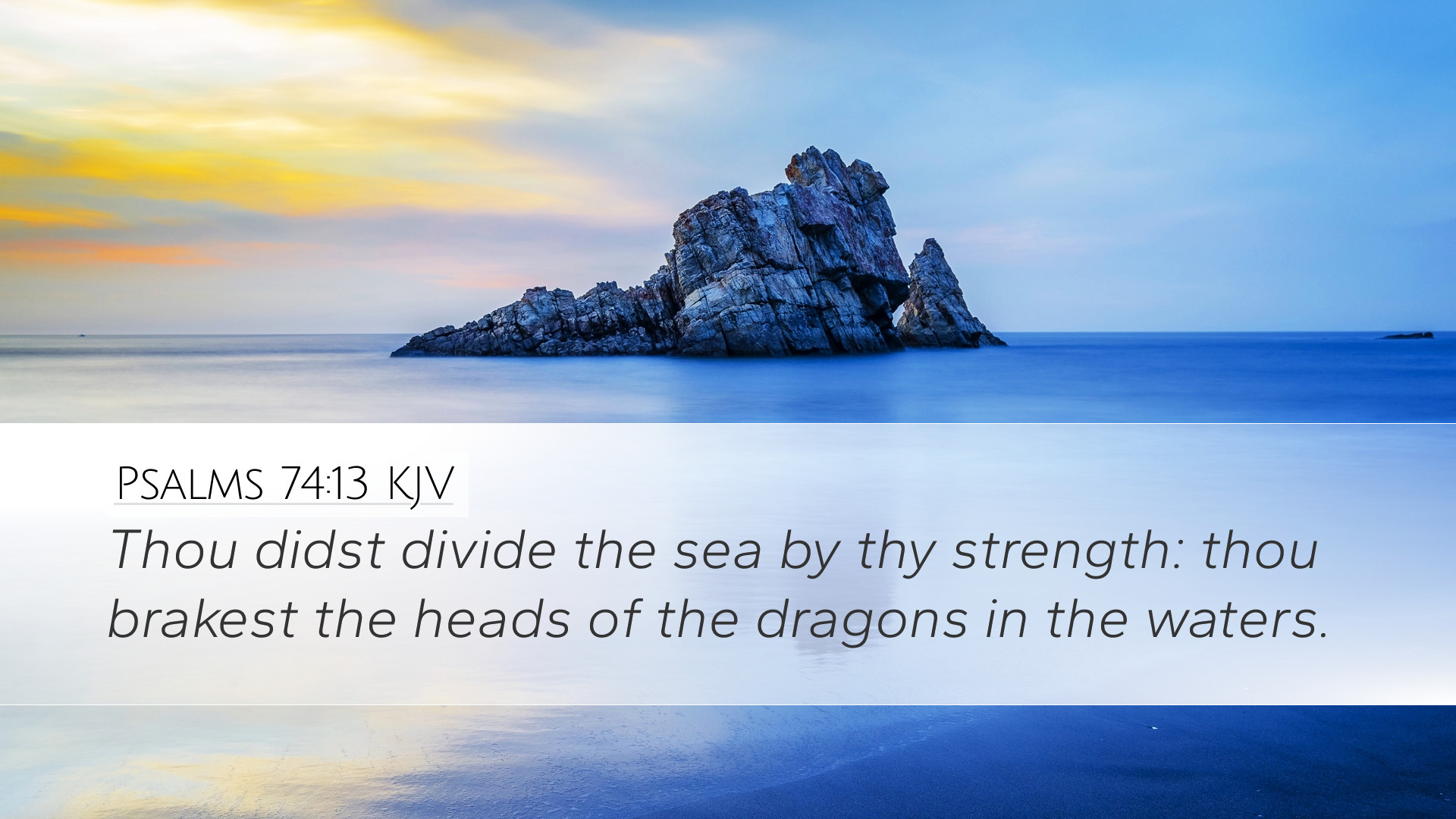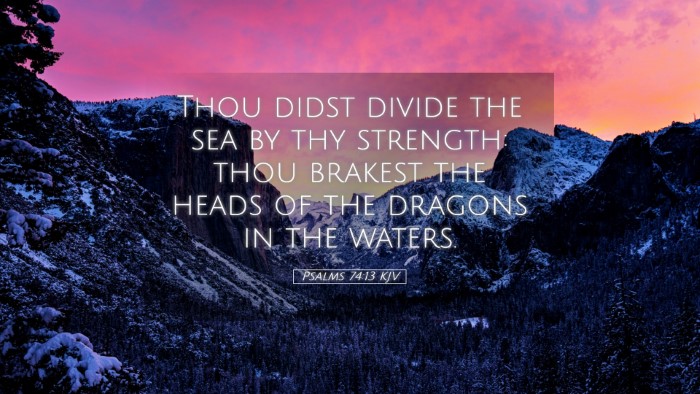Psalms 74:13: Commentary and Insights
Bible Verse: Psalms 74:13 - "You divided the sea by your strength; you broke the heads of the dragons in the waters."
Summary of the Verse
This verse reflects the sovereignty and omnipotence of God, highlighting His power over creation and chaos. The imagery of the sea and dragons represents both the literal forces of nature and the symbolic forces of evil. The act of God dividing the sea is reminiscent of the Exodus narrative, where God made a way through the waters for His people, demonstrating His deliverance and might.
Commentary Insights
1. Historical Context
Matthew Henry offers a historical lens, indicating that this psalm likely arises from a time of national despair, possibly during the Babylonian exile. The mention of God’s mighty acts serves as a reminder of past deliverance, strengthening Israel's hope for future salvation. The psalmist appeals to God's past actions as a basis for current trust and expectation.
2. Divine Sovereignty
Albert Barnes emphasizes the theme of divine sovereignty presented in this verse. The act of dividing the sea is not only a miraculous event but a testament to God’s authority over creation. This power over the "dragons"—often seen as chaotic sea creatures representing the forces of evil—illustrates that no force can stand against God’s will.
3. Symbolism of Water
Adam Clarke interprets the waters symbolically, noting that they often signify chaos and uncertainty in biblical literature. The reference to dragons serves as a metaphor for the turbulent forces that oppose God’s plan. Clarke highlights that by demonstrating His power over these elements, God reassures His people of His control over their circumstances and His ability to bring order from chaos.
4. The Nature of God's Power
All three commentators converge on the importance of recognizing God's power as fundamentally relational. The act of breaking the heads of dragons signifies a protective gesture towards His people, affirming that God not only has the power to create but also the power to conquer and defend.
5. Encouragement for Believers
The psalm serves as an encouragement for believers in times of distress. Just as God acted decisively in the past, He remains active in the present. The historical recounting reinforces faith in divine intervention and assures that God hears the cries of His people. Henry notes that this reflection encourages us to trust in God’s promises, especially in trying times.
Theological Implications
This verse invites deeper theological reflection regarding God’s nature. Themes of providence, deliverance, and sovereignty intertwine to present a God who is deeply involved in the affairs of humanity, working against the chaotic forces that threaten His creation.
1. Providence
Recognizing God's providence is critical. He is not an abstract deity but one who intervenes in history. The psalmist's recollection of past deeds serves as a foundation for hope, which is central to Christian faith. It teaches that believers can look back at God’s past faithfulness as a reassurance of His future promises.
2. Assurance of Deliverance
This verse speaks to the assurance of deliverance. Just as the seas were parted, so can God make a way through life’s challenges. Observing how God acted in the past provides a model for how believers can expect Him to act today and in the future. As Barnes notes, this assurance is foundational for sustaining faith during trials.
Practical Application
For pastors, students, and theologians, this verse and its commentary carry practical implications. Here are some applications:
- Trust in God: Always remind congregants of God's past faithfulness and the assurance it provides for current struggles.
- Combatting Chaos: Equip leaders to help others find peace amid chaos, leveraging theological insights to ground them in God’s unchanging nature.
- Encouragement through Scripture: Use the historical narratives within Scripture to provide hope and a model for faith amid trials.
Conclusion
Psalm 74:13 encapsulates powerful themes of God’s sovereignty, providence, and deliverance. The interplay of historical context, divine attributes, and practical applications makes this verse a profound source of encouragement for believers. By reflecting on God’s mighty works, we are reminded not only of His past faithfulness but also of our hope in His continual presence and power in our lives.


